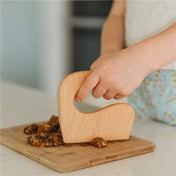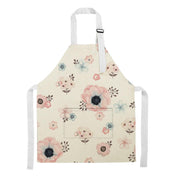How To Improve Your Child’s Fine Motor Skills
So many of our day-to-day functions require the use of fine motor skills, and we do them so effortlessly that we sometimes overlook their importance. But fine motor skills are so necessary to the growth and development of young children that they should be implemented in your child’s daily routine from an early age.
Fine motor skills are separate from gross motor skills, which focus on larger muscle groups to perform tasks such as running and jumping. Fine motor skills involve important aspects of childhood duties, including tying shoes, using a pencil or pen, brushing teeth, using scissors, and feeding yourself.
By a certain age, your child is expected to be able to complete most of these tasks by themselves. While children do develop their fine motor skills at different rates, those who are struggling with these essential skills will have difficulty keeping up with others their age. Luckily, there are many fun playtime activities that can not only engage your child and keep them occupied but also teach them how to use their motor skills without it feeling like a chore.
What Are Fine Motor Skills?

Fine motor skills involve movements of certain small muscles that engage the brain to focus on the action being performed concerning what the person is seeing. By using small muscles in the hands, fingers, wrists, feet, and toes, motor skills make tasks like writing or eating with cutlery possible. Other actions that require fine motor skills include holding, pressing, grasping and using a pincer grip with the thumb and forefinger.
Motor skill development is constantly happening from birth to about eight years of age. During this period of the child’s life, parents and teachers must focus on the acquisition and consolidation of these motor functions. During preschool and early primary school, motor skills must be developed so that children do not fall behind and struggle to do everyday activities. If a child finds themselves unable to complete these basic tasks by themselves, it can negatively affect their independence, academic performance, self-confidence, and more.
Fine Motor Activities for Toddlers
Fortunately, as a parent, you can do many fun and engaging activities with your child to increase their motor skill acquisition. And the best part is, most of them are things your child is probably already doing. By taking extra time and monitoring how your child interacts with their toys, you can see first-hand as they develop the motor skills they need to become self-sufficient. Some fine motor activities for young children include but are not limited to:
- Puzzles
- Arts & crafts
- Playdough
- Legos
- Bath time Play
Puzzles


As a parent, being able to see their child’s mind at work when completing a puzzle and seeing the joy and satisfaction that your child gets is tremendously rewarding. Doing puzzles with your child improves their fine motor skills, problem-solving skills, and cognitive development. Grabbing puzzle pieces and moving them into place helps develop the aforementioned pincer grasp.
Teaching a child to complete puzzles involves a lot of patience, both for the parent and the child. Children may try to put puzzle pieces in their mouths, get bored, frustrated, or give up. So, it is important to encourage them and let their brains work out how to solve these simpler puzzles before moving on to more complex ones. Your child will soon improve their hand-eye coordination, gain problem-solving abilities, and refine those vital motor skills. We recommend this Starter Set for your toddler to begin developing the motor skills necessary for their development.
Arts & Crafts

Arts and crafts are the basis for fine arts, which involve creative freedom and artistic expression. It is also a great way to develop a young child’s dexterity and hand-eye coordination. By drawing and painting, you can develop motor skills while also encouraging creativity and imagination. By trying different art forms, you can expose your child to a vast array of mediums and learn what your child likes and dislikes. By using paintbrushes, coloured pencils, crayons, and chalk, you can refine a child’s ability to hold things with their hands, develop greater control, and improve their cognitive function. A child needs to learn how to use their brain to do things accordingly with their body. Look through our range of Creative Play and Crafts to find the art supplies your child needs.
Playdough
Toys like playdough and putty improve motor skills by squeezing, stretching, pinching, and rolling. By manipulating the playdough, a child can roll them into familiar objects like snakes or worms. Children can even use scissors to cut playdough and further sharpen their hand-eye coordination. Our Wooden Animal Playdough Stamps are a great way for children to familiarise themselves with Australian wildlife while getting the stimulation necessary for fine motor skill development.
Lego



Blocks and Legos are great for building, connecting, and stacking. They also teach pushing and pulling movements while promoting creativity. By building and picking up Legos, your child will strengthen the smaller muscles in their hands, improve coordination, and use their imagination to ‘invent’ new things. The skills a child gains from playing with Legos and blocks will help them with other skills later down the line, such as learning how to write. Try our Magbrix Magnetic Brick Tiles for a fun learning experience with your toddler.
Bath Time Play
Believe it or not, even the bathtub is a great place for your child to learn and improve their fine motor skills. By placing cups in the bathtub and allowing your child to fill it up with bathwater and pour it out, they will improve their hand-eye coordination and continue to develop the muscles in their hands. By using sponges to clean themselves or rubber toys that make noise when squeezed, your child will learn to grip and squeeze, which will help them write and do arts and crafts. My Happy Helpers’ Bath Crayons are a fun, messy, and great way to encourage your child’s creativity and help them develop motor skills while in the bath. The crayon markings are easily cleaned with a damp cloth, and one is even provided in the pack.
Shop Our Selection Of Fine Motor Skill Toys

Fine motor skills are essential to the growth and development of young children. The skills that children learn at this age will be used by them for the rest of their lives. So, it is important that they learn these skills early and grow up to be happy, intelligent, and creative little people. Shop our Fine Motor Skills Toys range today and enjoy watching your young child grow, learn, and have fun while doing it!




